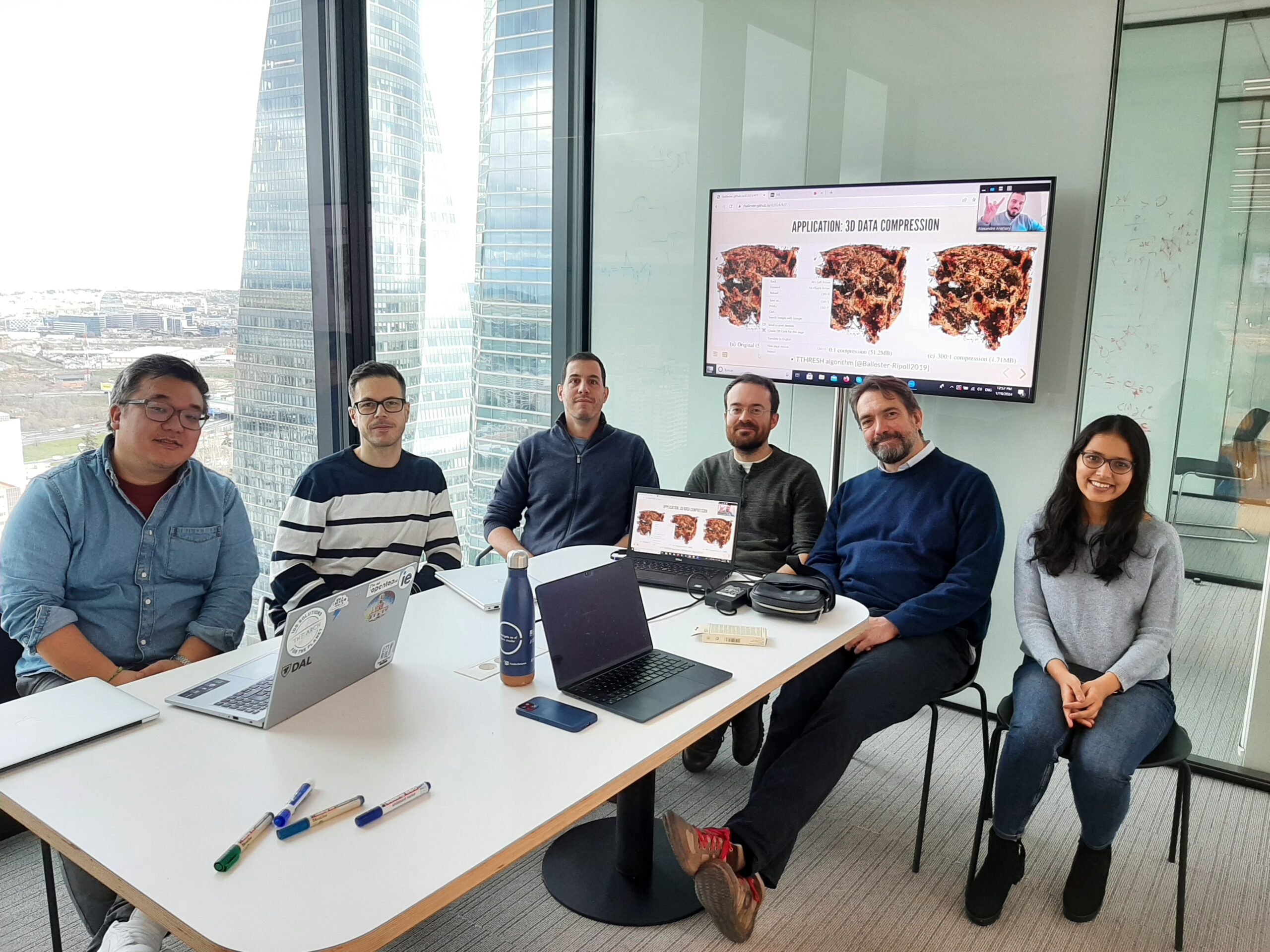Today marked the start of the bi-weekly seminar series at IE Research Datalab, aimed at fostering collaboration and knowledge sharing among researchers. The first seminar featured a presentation by Professor Rafael Ballester, a respected expert in applied mathematics.
Professor Ballester’s talk focused on tensor networks, a topic he made accessible through practical examples. He showcased his PhD research, where he achieved a significant feat by compressing a 3D physical simulation to 1/300th of its original size without losing important details. This example effectively demonstrated the practical use of tensor networks in reducing data size, especially for complex information.
The seminar also explored the application of tensor networks in various areas beyond data compression. Professor Ballester explained how these networks are useful in fields like quantum physics and in creating Bayesian networks, which are important in healthcare for improving disease diagnosis accuracy. He also touched on the potential of integrating tensor network techniques with machine learning, suggesting improvements in processing speed and efficiency. The applications of tensor networks are endless and groundbreaking, so much so that Professor Ballester admitted that his “new hobby” is “checking new applications of network contractions”.
The seminar concluded with a discussion among IE Research Datalab members, who shared their thoughts on applying tensor networks in their work. “Tensor networks open a world of disruptive collisions” some claimed. The positive reception and interest in future seminars highlighted the success of this initial session. This seminar series is set to become a key platform for sharing innovative ideas and promoting interdisciplinary research at IE Research Datalab. Next seminar will take place on February 1st and will be hosted by Dae-Jin Lee, who wants to start by sharing his own applications on tensor networks before moving to other topics.
